Need a Transfusion? - St. Joseph's Health Centre Toronto
advertisement
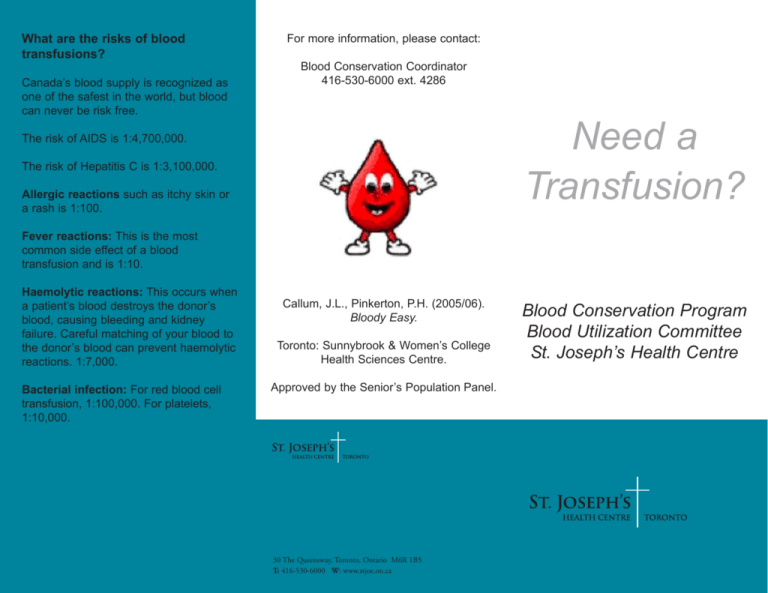
What are the risks of blood transfusions? Canada’s blood supply is recognized as one of the safest in the world, but blood can never be risk free. For more information, please contact: Blood Conservation Coordinator 416-530-6000 ext. 4286 Need a Transfusion? The risk of AIDS is 1:4,700,000. The risk of Hepatitis C is 1:3,100,000. Allergic reactions such as itchy skin or a rash is 1:100. Fever reactions: This is the most common side effect of a blood transfusion and is 1:10. Haemolytic reactions: This occurs when a patient’s blood destroys the donor’s blood, causing bleeding and kidney failure. Careful matching of your blood to the donor’s blood can prevent haemolytic reactions. 1:7,000. Bacterial infection: For red blood cell transfusion, 1:100,000. For platelets, 1:10,000. Callum, J.L., Pinkerton, P.H. (2005/06). Bloody Easy. Toronto: Sunnybrook & Women’s College Health Sciences Centre. Approved by the Senior’s Population Panel. 30 The Queensway, Toronto, Ontario M6R 1B5 T: 416-530-6000 W: www.stjoe.on.ca Blood Conservation Program Blood Utilization Committee St. Joseph’s Health Centre Need a Transfusion? What is a blood transfusion? Your doctor can order a blood transfusion to replace low levels of different parts of your blood. A blood transfusion is given through a needle placed in your vein. What kinds of blood products are there? Red Blood Cells: These cells carry oxygen through your body. When the amount of red cells decreases in the blood, a person is said to have anaemia or “low blood.” Plasma: Plasma (the fluid part of your body) carries blood cells throughout the body and contains proteins for blood clotting. Plasma can be made into different products that are used to treat certain illnesses. Platelets: Are small cells that help stop bleeding by forming blood clots. They form clusters to plug small holes in blood vessels. Albumin: A protein that helps to control movement of fluid in your body. Where does the blood come from? In Ontario, Canadian Blood Services collects the blood from volunteer donors. Donors are asked questions about their health, travel and social history before their blood is collected. This makes sure that blood collected is as safe as possible. The blood is then tested for infectious diseases and if it does not pass the tests, it is destroyed. That donor is not allowed to give blood in the future. After the testing is completed, the blood is separated into its various parts such as plasma and red blood cells. When the doctor orders a blood product, a sample of your blood is tested. This testing process ensures your blood type matches the type of the donated blood. Why are blood transfusions needed? Blood transfusions are often needed if the patient looses blood due to an accident, an operation, an illness or some cancer treatments. Blood transfusions may also be needed if the body cannot make all the parts of blood or if the parts are not working properly. Only a doctor can order a blood transfusion. What are the benefits of blood transfusions? A transfusion can help you recover from a serious illness, surgery or injury. Sometimes you will need repeated transfusions because you are missing an important part of blood. Alternatives to Blood Transfusions There are possible alternatives to blood transfusions, especially if you are planning surgery. Talk about your options with your surgeon or family physician.
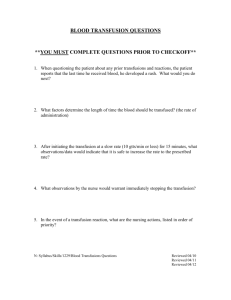
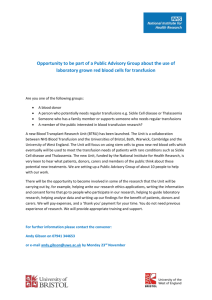
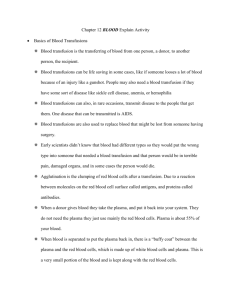
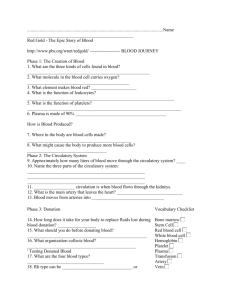
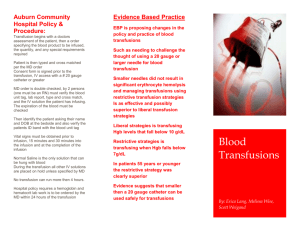
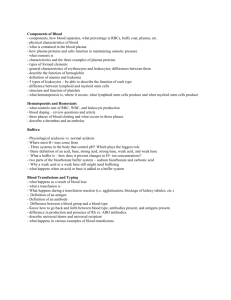

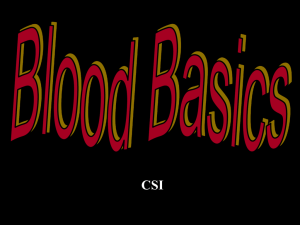
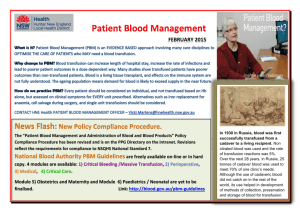
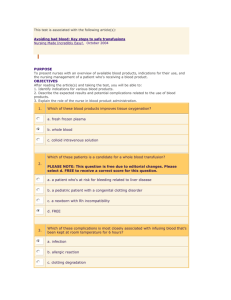
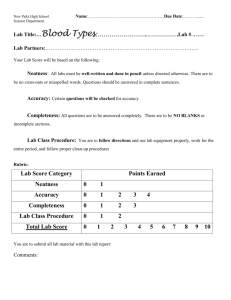
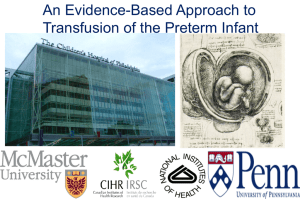
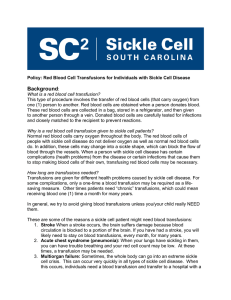
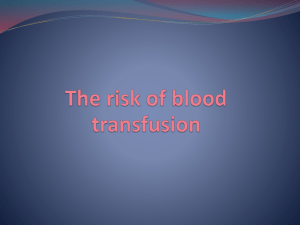
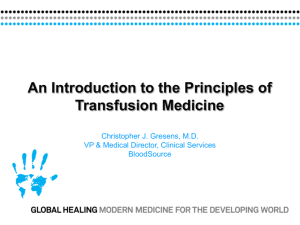
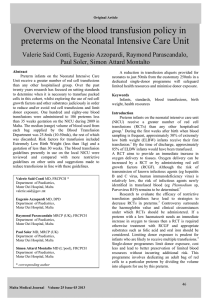
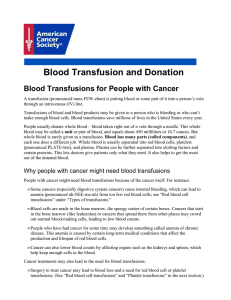

![CBS_Journal_Club_Oct4-2[1]](http://s2.studylib.net/store/data/010184017_1-be77cd1f047289dc9317c9ca9ab5c93b-300x300.png)